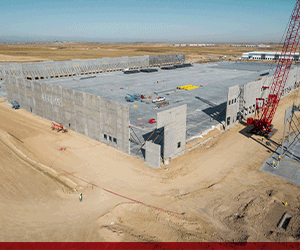DENVER — Mayor Michael B. Hancock recently reaffirmed Denver’s leadership in combatting climate change and embracing clean energy with the release of the city’s 80×50 Climate Action Plan.
“Cities like Denver will continue to push forward on clean energy,” Mayor Hancock said. “We have a responsibility to do everything we can to ensure clean air and a stable climate for our children. Cities generate more than 70 percent of global greenhouse gas emissions, and we are a crucial part of the climate solution.”
Buildings, transportation and electricity generation are most responsible for greenhouse gas emissions in the city and are key highlights in the plan. In order to limit warming to less than 2 degrees Celsius in Denver, the long-term greenhouse gas reduction goal is to reduce emissions by 80 percent below the 2005 baseline levels by 2050. The reduction of the amount of climate-altering carbons such as CO2 is needed across all three sectors in order to achieve this. Clean technologies such as wind, solar and battery storage are available and affordable with clear benefits to health and quality of life.
“The Lancet medical journal has described climate change as both the leading threat to public health in the 21st century and also the biggest opportunity to realize the benefits clean energy and energy efficiency can bring to clean our air, preserve and protect scarce water supplies, and make our cities more livable,” said Bob McDonald, executive director of DDPHE.
The plan positions Denver as one U.S. city that has released an actionable 80×50 climate-change and clean energy blueprint and includes interim targets to; reduce total community-wide greenhouse gas emissions by 30 percent and make all new buildings net-zero by 2025, achieve 100 percent renewable electricity in municipal facilities by 2025 and community-wide by 2030 and increase electric vehicle registrations to 30 percent by 2030.
“Interim goals are imperative in order for us to track progress and continually reassess methodologies,” Mayor Hancock said. “A variety of approaches are needed to reach the long-term objectives, and the city will lead the way in achieving meaningful strides toward these critical goals, while also calling upon the community to join us in our efforts.”
The 80×50 plan was developed after a review of dozens of other strategies, activities and best practices from cities around the world. Experts in buildings, transportation and power generation supported the process and guided the development of targets and strategies.
In Denver, transportation is the largest source of air pollution and the second largest source of greenhouse gas emissions. As one of 35 champion cities in the Bloomberg Philanthropies Mayors Challenge, the city will use cutting-edge air pollution sensor technology to create air quality monitoring network at public schools to result in better-informed policy decisions.
Denver is on track to meet its 2020 climate goal to reduce carbon emissions to 1990 levels through the efforts of Xcel Energy and community advocates to increase renewable energy and decrease energy consumption. High-impact policies and programs have also been implemented in recent years to drive emissions down in buildings and transportation sectors. The 2016 benchmarking and transparency ordinance has achieved a compliance rate of more than 90 percent and is expected to deliver energy savings of at least 2-3 percent annually.
Denver will continue to prioritize walking, biking and public transit and more travel lanes will be transit-only. Major investments are planned for sidewalks, neighborhood bikeways and protected bike lanes to reduce emissions in the transportation sector. The city will invest more than $415.5 million in transportation and mobility projects in the next few years as part of the voter-approved Elevate Denver Bond package. Denver is also partnering with the cities of Seattle, New York and Portland on a U.S. Department of Energy grant that will create new options for shared mobility.









